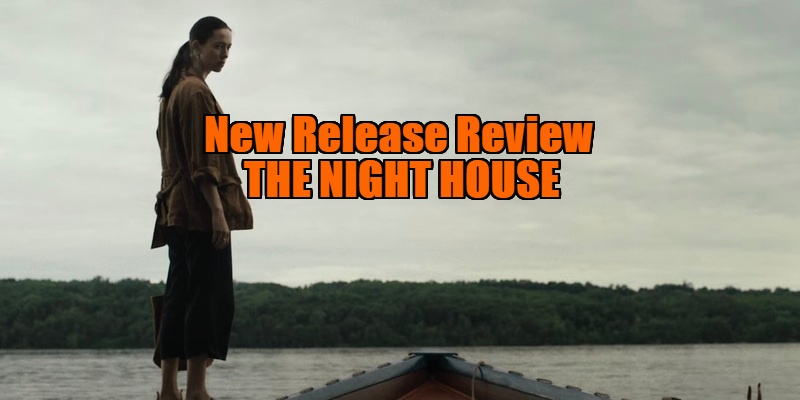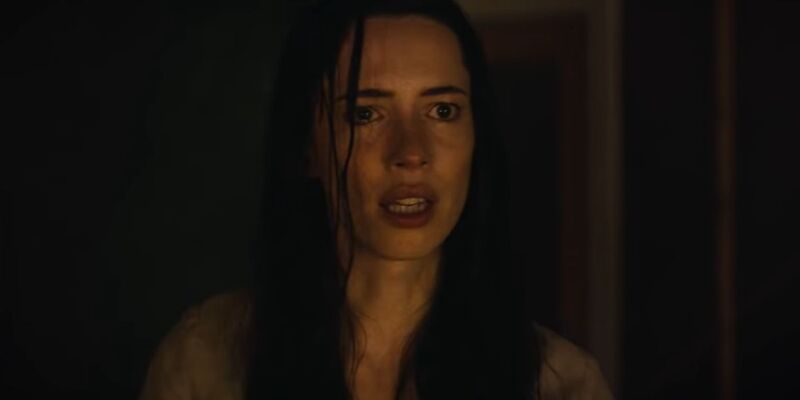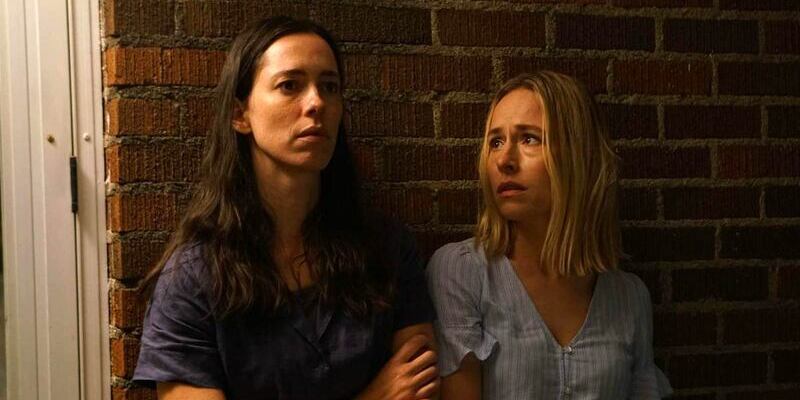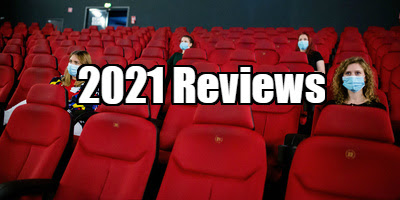
Review by
Eric Hillis
Directed by: David Bruckner
Starring: Rebecca Hall, Sarah Goldberg, Stacy Martin, Vondie Curtis Hall, Evan Jonigkeit

The Night House falls into a horror sub-genre I've rarely
cared for - the procedural horror. These movies usually involve a
protagonist stumbling across some supernatural entity and launching an
investigation, leafing through books on the occult or more commonly today,
googling for answers. They often feature some wronged ghost trying to get
justice from beyond the grave. The godfather of this sort of thing is Peter
Medak's 1980 film The Changeling, which many people now hold up as a horror classic. But while that movie
does indeed feature an iconic creepy set-piece involving a child's ball,
most of it involves George C. Scott investigating like it's an episode of
Law & Order. Not for me.

In director David Bruckner's The Night House, our sleuth is Beth (Rebecca Hall), a teacher who has returned to
work mere days after her hubby Owen (Evan Jonigkeit) blew his brains
out. In the weeks after Owen's death, Beth experiences strange visions of
young women jumping to their deaths, a sinister whispery voice, phone calls
and texts from Owen's cellphone, banging sounds in the house and the stereo
playing the same song over and over.
Scrolling through Owen's phone and laptop, she finds pictures of a variety
of dark-haired women, all of whom bear a slight resemblance to herself (One
of them is played by Stacy Martin, who I've always felt should be
cast as Hall's sister at some point, given their similarities). As the
protagonists of these films are wont to do, Beth begins to look into her
hubby's past.

There are some intriguing ideas teased by Ben Collins and Luke Piotrowski's script, but they're conveyed in a hackneyed manner.
The Night House relies far too much on telling rather than
showing, with too many important plot points relayed to us through
characters confessing secrets to each other. Beth discovers a half-finished
house in the woods that's a mirror image of her own home. We only know it's
a reversal of her home because she tells us - Bruckner never conveys this
information to us in a visual manner.
What Bruckner does do well is construct a few atmospheric sequences in
which Beth, and we the audience, are tricked into thinking the outlines of
inanimate objects represent some humanoid spook lurking in the house. The
film's strengths ultimately are mostly down to the commitment of Hall, who
really brings a gravitas to a role that fails to match her talents. Bruckner
and Hall aren't afraid to make Beth a little difficult to warm to, and she's
a refreshingly flawed human protagonist. Hall keeps us invested in Beth's
quest for the truth, but only to a point. At close to two hours, the movie
really begins to lurch towards its conclusion, not so much elevated horror
as elongated horror.

[Spoilers to follow] When it's revealed
just what's going on here, the whole endeavour collapses. We learn that Beth
once died for four minutes following a car crash in her youth and that
feeling cheated out of a soul, the Grim Reaper has been trying to get his
hands on her ever since. To fool Death, Owen began constructing a mirror
image house in which he takes women who share surface similarities to Beth.
There, the Reaper takes over his body and kills them, only to realise he's
been duped, causing Owen to seek another victim and repeat the process.
What? You're telling us the Grim Reaper can't tell one willowy brunette from
another?


